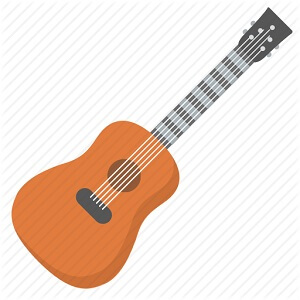Jarana Jarocha
 The jarana jarocha is a guitar-shaped fretted stringed instrument from the southern region of the state of Veracruz, Mexico. Typically strung with 8 strings in 5 courses, usually arranged in two single outer strings with three double-courses in between. The body is somewhat narrower than a guitar because of its direct lineage from the Spanish baroque guitar of the sixteenth century.
The jarana jarocha is a guitar-shaped fretted stringed instrument from the southern region of the state of Veracruz, Mexico. Typically strung with 8 strings in 5 courses, usually arranged in two single outer strings with three double-courses in between. The body is somewhat narrower than a guitar because of its direct lineage from the Spanish baroque guitar of the sixteenth century.
There are typically several different sizes of the jarana, often played together, and sometimes using different tunings within the same ensemble. The three sizes of jarana shown in the photo are called tercera, segunda, and primera.
Luthiers (lauderos) carve the body, neck, and peghead of the jarana out of a single block of wood, with a thin soundboard glued to the front. Mexican cedar is the traditional material used in making these instruments, although woods such as mango, walnut, and others have more recently been used. For tuning, friction pegs made from a harder wood (much like those on a violin) are commonly fitted. The strings, formerly gut, are now made from nylon.